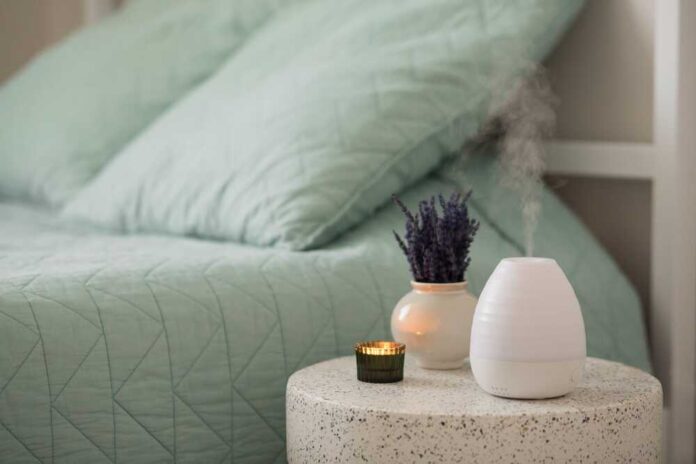
An evocative fragrance, a subtle scent drifting through the room as you sleep—these may be more than soothing elements of relaxation or ambiance.
They could be keys to enhancing memory and cognitive functions.
Our sense of smell is linked to parts of the brain responsible for memory, emotion, and learning. This unique connection forms an intimate bond between the scents we encounter and our mental functions.
Olfactory Stimulation as a Cognitive Enhancement Tool
A groundbreaking study published in July 2023 in Frontiers in Neuroscience has opened up new possibilities in this area.
The study involved 43 older adults, aged 60–85. Those in the test group were exposed to seven different scents over a week, one per night, for two hours. The control group had the same experience but with minimal, placebo amounts of scent.
The results were astounding, with the group exposed to the scents showing a 226% improvement in memory tests. More specifically, the researchers found positive changes in a particular part of the brain connected to memory and learning.
Conducted over six months, the experiment concluded that even a small amount of scent exposure at night improves cognitive functions and brain health.
A New Way to Approach Treatment
Using scents to enhance cognitive functions offers a low-cost, non-invasive, and effective method for reducing the risks associated with age-related cognitive decline.
Its simplicity and accessibility make it a revolutionary tool for healthcare professionals and caregivers, potentially changing the way we approach mental care and aging.
Which Scents are Best?
Traditional aromatherapy often emphasizes the benefits of specific essential oils, attributing unique properties to each one. Lavender for relaxation, peppermint for invigoration, and rosemary for memory enhancement are common examples. This common approach tends to promote a singular focus on individual oils and their associated benefits.
However, the groundbreaking study conducted in July 2023 has opened up a new perspective on aromatherapy that challenges this status quo. It suggests that the true power of aromatherapy might not lie in individual scents but rather in the enriching stimulation of diverse sensory experiences.
The participants in the study were exposed to a different scent each night of the week. The results point to the possibility that it was not any particular scent that led to cognitive improvements but the varied and stimulating olfactory experience itself.
This revelation offers a new lens through which to view and practice aromatherapy, focusing on a broader, more holistic appreciation of sensory enrichment. It beckons us to explore the symphony of scents and their cumulative effects, rather than fixating on isolated notes.
In practice, this means that instead of seeking out a single “miracle” oil for a particular ailment or goal, individuals and practitioners might consider creating a dynamic and varied olfactory environment. The goal becomes not just to treat or enhance but to engage, stimulate, and enrich the senses through a rich tapestry of fragrances.
Integrating Aromatherapy into Your Life
With the scientific evidence pointing toward the positive effects of aromatherapy on cognitive functions, especially in older adults, the concept of utilizing scents for well-being is no longer just an art but a science-backed practice.
Here are some practical tips to incorporate aromatherapy into your daily life:
- Identify Your Goals: Determine what you hope to achieve with aromatherapy, be it improved memory, relaxation, or even better sleep. Understanding your objectives will guide your choice of scents.
- Choose Quality Essential Oils: Look for pure essential oils, which are free from synthetic additives. High-quality oils are more likely to provide the therapeutic effects you seek.
- Use an Essential Oil Diffuser: Invest in a quality diffuser to disperse the aroma throughout your space. A diffuser can be particularly effective at night, aligning with the study’s findings on overnight olfactory enrichment.
- Consider Professional Guidance: If you’re new to aromatherapy, you may want to consult an aromatherapist or holistic healthcare provider to understand the best oils and methods for your needs.
- Experiment with Different Scents: The study exposed participants to different scents each night. This seems to indicate that the benefits come, not from any one scent in particular, but rather from the enriching stimulation of diverse sensory experiences.
- Safety Considerations: Always follow the instructions for use, especially if you’re pregnant, nursing, or have underlying health conditions. Some oils may not be suitable for everyone.
- Incorporate Scents into Your Routine: Beyond the diffuser, consider other ways to integrate scents into your life, such as scented candles, lotions, perfumes, or even cooking with aromatic herbs.
The exciting findings from the world of neuroscience have bridged the gap between traditional practices and modern science, making aromatherapy an accessible and impactful addition to daily life.






















